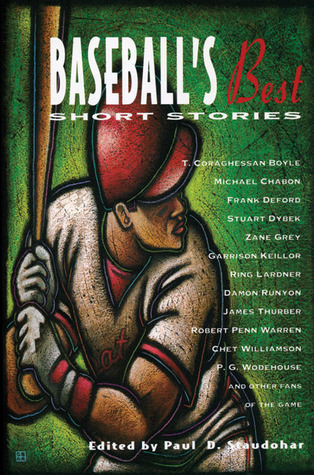It’s the seventh anniversary of Mirror With Clouds and as I have been doing the last few years, here are my top ten favorite short stories of 2018 with quotations from each of them. I have no method of rating them – they are just the ones I liked the best. And as happens with many of my top ten lists, the top two could be interchangeable on any given day depending on my mood – both of them are fantastic stories!
10. Lions, Harts, Leaping Does – J. F. Powers
He suffered the piercing white voice of the Apocalypse to echo in his soul: But because thou art lukewarm, and neither cold nor hot, I will begin to vomit thee out of my mouth. And St. Bernard, fiery-eyed in a white habit, thundered at him from the twelfth century:”Hell is paved with the bald pates of priests!”
9. The Little Regiment – Stephen Crane
Ultimately the night deepened to the tone of black velvet. The outlines of the fireless camp were like the faint drawings upon ancient tapestry. The glint of a rifle, the shine of a button, might have been of threads of silver and gold sewn upon the fabric of the night. There was little presented to the vision, but to a sense more subtle there was discernible in the atmosphere something like a pulse; a mystic beating which would have told a stranger of the presence of a giant thing – the slumbering mass of regiments and batteries.
8. Faith – William Trevor
Afterwards, Bartholomew told himself that what had occurred must surely be no more than a mood of petulance, an eruption from his half-stifled impatience with the embroidery and frills that dressed the simplicity of truth with invasive, sentimental stories that somehow made faith easier, the hymns he hated. For Bartholomew, the mystery that was the source of all spiritual belief, present through catastrophe and plague and evil, was a strength now too, and more than it had ever been. Yet there was disquiet, a stirring in his vocation he had brought upon himself and wished he had not…Bartholomew – not knowing what he should otherwise do – continued to visit the lonely and the sick, to repeat the Te Deum, the Creed, the Litany. He felt he should not and yet he did.
7. The Virgin’s Gift – William Trevor
He begged that his melancholy might be lifted, that the confusion which had come in the night might be lightened with revelation. These were the days of the year when his spirits were most joyful, when each hour that passed brought closer the celebration of the Saviour’s birth. Why had this honoring of a season been so brutally upset?
6. Graillis’s Legacy – William Trevor
His safe employment had been taken for granted; in time promotion would mean occupancy of a squat grey landmark in the town, the house above the bank, with railings and a grained hall door. She had married into that; books had never been an interest they shared, had never been, for her, a need.
The woman for whom they were had often been noticed by Graillis about the town, coming out of a shop, getting into her car, not the kind of woman he would ever have known.
5. Death of a Right Fielder – Stuart Dybek
Finally we saw him; from a distance he resembled the towel we sometimes threw down for second base.
4. The Reach – Stephen King
“We joined hands, children, and if there were times when we wondered what it was all for, or if there was ary such a thing as love at all, it was only because we had heard the wind and the waters on long winter nights, and we were afraid.
“No, I’ve never felt I needed to leave the island. My life was here. The Reach was wider in those days.”
3. Resurrection of a Life – William Saroyan
I was this boy and he is dead now, but he will be prowling through the city when my body no longer makes a shadow upon the pavement, and if it is not this boy it will be another, myself again, another boy alive on earth, seeking the essential truth of the scene, seeking the static and precise beneath that which is in motion and which is imprecise.
2. The School – Donald Barthelme
Of course we expected the tropical fish to die, that was no surprise. Those numbers, you look at them crooked and they’re belly-up on the surface. But the lesson plan called for a tropical-fish input at that point, there was nothing we could do, it happens every year, you just have to hurry past it.
1. My Son the Murderer – Bernard Malamud
At night I watch the news programs. I watch the war from day to day. It’s a big burning war on a small screen. It rains bombs and the flames go higher. Sometimes I lean over and touch the war with the flat of my hand. I wait for my hand to die.







